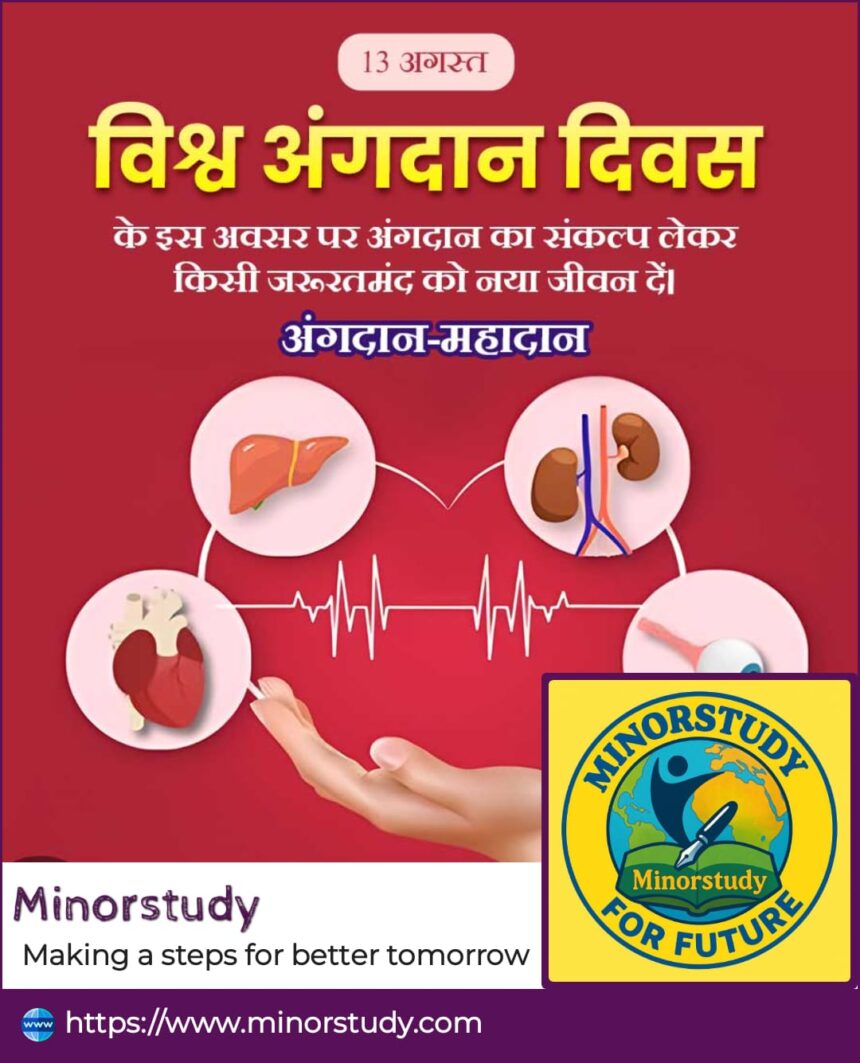World Organ Donation Day: History, Significance, Facts & Life-Changing Impacts
Organ donation is one of the most selfless acts a human being can perform. It gives others a second chance at life and demonstrates the ultimate form of human compassion. World Organ Donation Day is celebrated globally to raise awareness about the importance of organ donation, educate people, and encourage voluntary participation in this life-saving initiative. In this article, we’ll explore everything you need to know: history, facts, FAQs, timeline, significance, daily life impacts, and the broader societal importance.
History of World Organ Donation Day
The idea of dedicating a day to organ donation emerged from the need to address the global shortage of organs available for transplantation. While organ transplantation began in the mid-20th century, public awareness was minimal.
1967: The first successful heart transplant was performed by Dr. Christiaan Barnard in South Africa, marking the beginning of modern organ transplantation.
1990s: Countries worldwide began realizing the critical shortage of organs and the need for awareness campaigns.
2008: The World Health Organization (WHO) recommended establishing a global day to promote organ donation.
Since then: World Organ Donation Day is observed every year on October 13th, coinciding with the birthday of Dr. Joseph Murray, the pioneering surgeon behind the first successful kidney transplant.
The day aims to honor donors, support recipients, and educate society about the life-saving potential of organ donation.
Fascinating Facts About World Organ Donation Day
Life-Saving Potential: One donor can save up to 8 lives and improve the lives of over 50 people through tissue donation.
Global Shortage: Every year, millions of people worldwide die waiting for organs due to a shortage of donors.
Organ Donation Registration: Countries like Spain and Belgium follow an “opt-out” system, which has significantly increased donation rates compared to countries with voluntary opt-in systems.
Types of Donations: Donations can be living (like a kidney or part of the liver) or deceased (after brain death).
Awareness Campaigns: Schools, colleges, hospitals, and NGOs actively participate in awareness drives on this day to promote organ donation registration.
Timeline of World Organ Donation Awareness
Mid-20th Century: First successful organ transplants performed worldwide.
1990s: Organ donation campaigns initiated in several countries.
2008: WHO suggested a global awareness day for organ donation.
2010: Many countries officially adopted World Organ Donation Day, integrating it into national healthcare awareness calendars.
2020s: Digital campaigns and social media drives have made the message of organ donation reach millions globally.
Significance of World Organ Donation Day
World Organ Donation Day holds tremendous importance in both medical and social contexts:
Raising Awareness: It educates the public about organ donation and transplantation procedures.
Encouraging Registration: More people are motivated to register as organ donors.
Honoring Donors: The day pays tribute to those who have donated organs selflessly.
Saving Lives: Awareness leads to an increase in donors, which directly saves lives.
Promoting Ethical Practices: Helps prevent illegal organ trade and ensures donations follow ethical guidelines.
How World Organ Donation Day Impacts Daily Life
In Families: Discussions about organ donation help families make informed decisions during critical times.
In Schools & Colleges: Educating students fosters a culture of empathy, responsibility, and social awareness.
In Healthcare: Hospitals witness higher registrations for organ donations, increasing availability for patients in need.
Community Engagement: Drives and campaigns create a sense of unity and collective social responsibility.
Frequently Asked Questions (FAQs)
Q1: Who can donate organs?
A1: Healthy adults, and in some cases children, can donate organs either while living or after death.
Q2: Does religion allow organ donation?
A2: Most religions encourage organ donation as an act of charity and kindness, though guidance may vary.
Q3: Can any organ be donated?
A3: Commonly donated organs include kidneys, liver, heart, lungs, pancreas, and intestines. Tissues like cornea, skin, and bone are also donated.
Q4: Does donating organs affect funeral arrangements?
A4: No, organ donation is performed respectfully, and it does not affect burial or cremation practices.
Q5: How can I register as an organ donor?
A5: Registration is possible online, via national health services, hospitals, or during driver’s license application in many countries.
Wishing and Observance
On World Organ Donation Day, people express gratitude and respect to both donors and recipients. Wishes can include:
“May your selfless act of donating organs inspire others and save countless lives!”
“Honor life, share life – become an organ donor today!”
Communities and hospitals often organize events like:
Awareness walks and rallies
Educational webinars and workshops
Donation pledge drives
Importance to Society
World Organ Donation Day has a profound impact on society:
Promotes empathy and compassion: Encourages selflessness in communities.
Strengthens healthcare systems: Helps hospitals plan and manage organ transplants efficiently.
Reduces mortality rates: More organ donors directly mean more lives saved.
Educates the younger generation: Promotes a culture of giving and social responsibility.
Conclusion
World Organ Donation Day is not just a date on the calendar; it is a call to action. It reminds us that one person’s generosity can save multiple lives. Whether through donating organs or spreading awareness, every effort counts. By understanding the history, significance, and impact of organ donation, we can collectively create a society where life-saving acts are celebrated, respected, and embraced.
Every year, October 13th encourages us to reflect on the power of giving, the gift of life, and the importance of being informed. By registering as donors, spreading awareness, and honoring those who have given the ultimate gift, we contribute to a more compassionate and healthier world.
Key Takeaways:
World Organ Donation Day: October 13th every year.
One donor can save up to 8 lives.
Awareness campaigns increase donor registration.
Observance promotes empathy, responsibility, and life-saving actions.
Societal impact is immense—more lives saved, stronger healthcare, and ethical practices.








